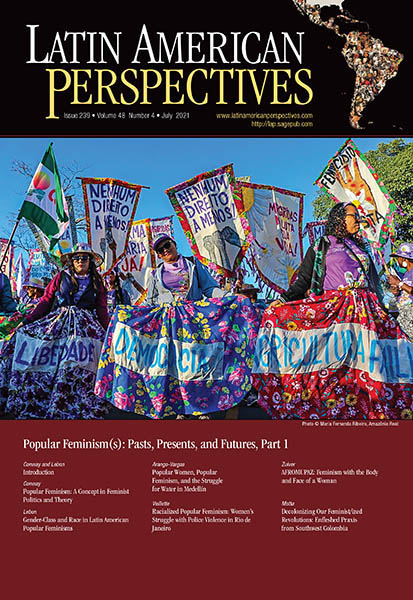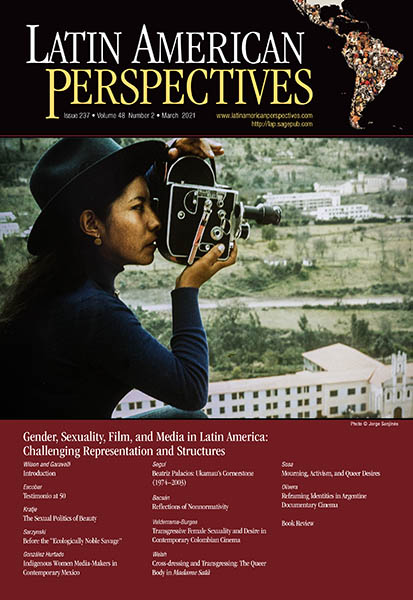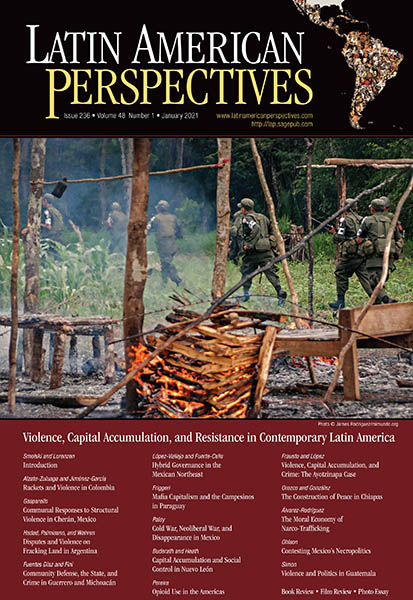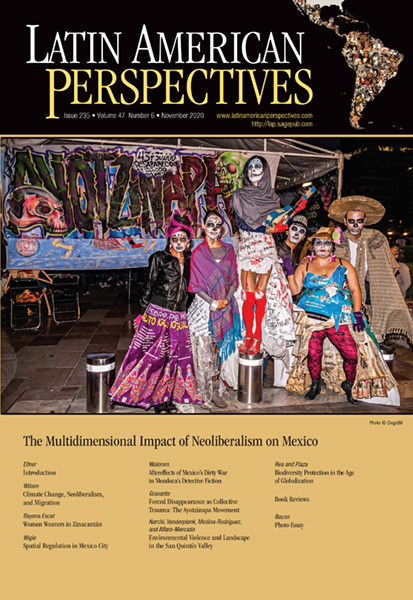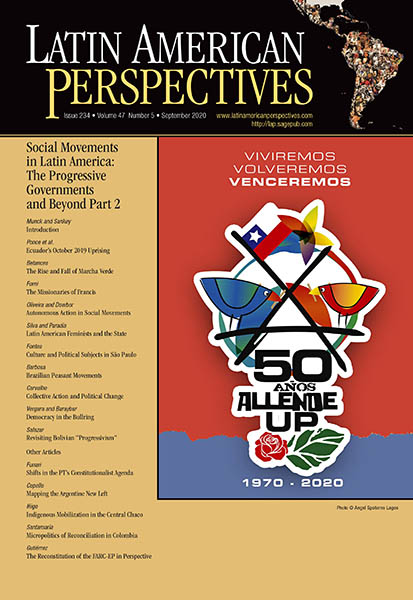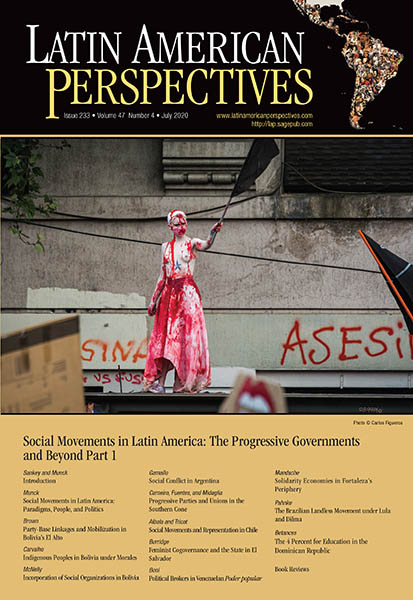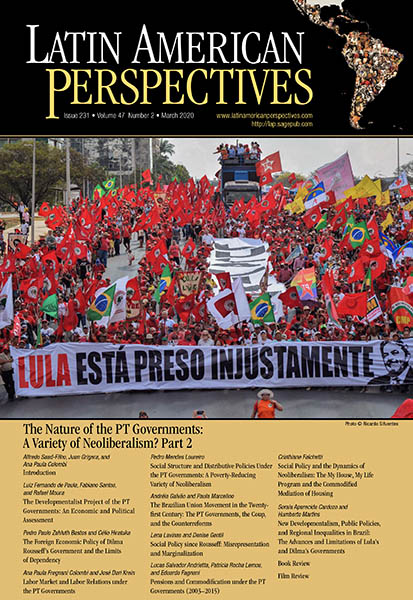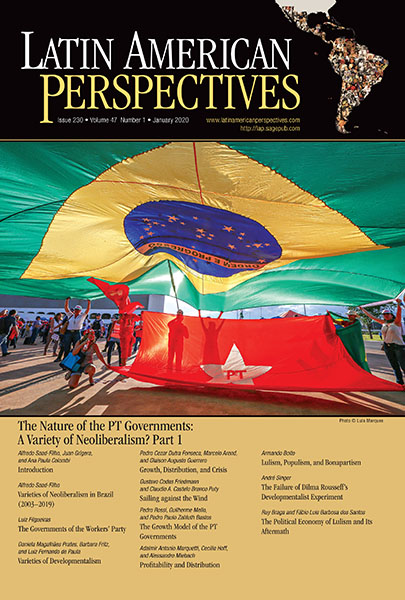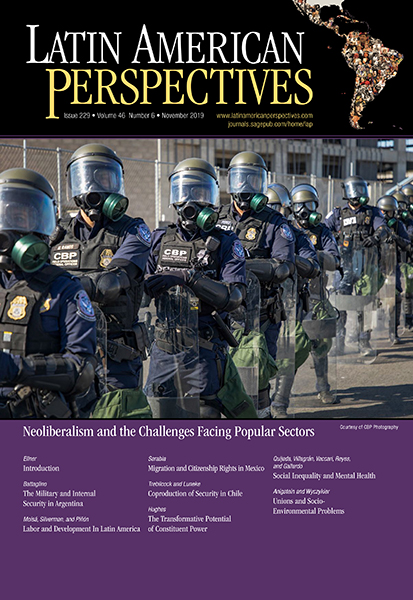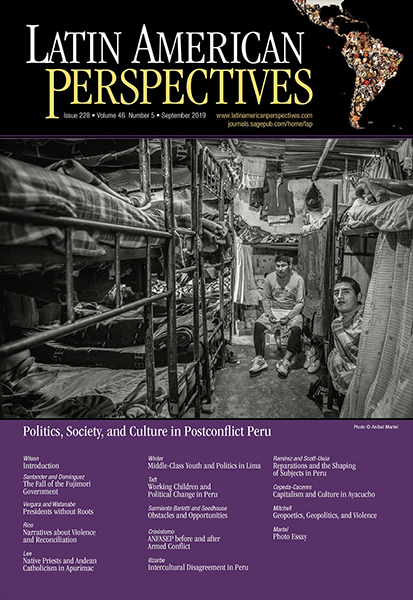Popular Feminism(s): Past, Present, and Futures, Part I
July 2021 Issue Editors: Janet M. Conway and Nathalie Lebon This thematic double issue focuses on popular feminisms, that is, the diverse forms of gendered agency appearing among Latin America’s poor, working-class and racialized communities, and their relation to the politics of feminism and to the broader left in the region. The collection addresses the question of subaltern subjectivities and the building of collective agency in relation to the broader politics of social transformation. It also examines popular feminism as concept with a particular genealogy in relation to histories of the left and to socialist feminism, and inquires into its contemporary relevance, as well as its persistent elision of race and coloniality. The twelve contributions include contextualized studies of grassroots feminist praxis drawn from Brazil, Colombia, Chile, Mexico, Venezuela, and Peru, as well as of national and transnational-scale organizing, and address gendered agency in relation to issues ranging from access to water, opposition to extractivism, the politicization of care work, survival in the face of systemic violence, and Indigenous autonomy. The collection includes a substantive theoretical introduction to popular, racialized and decolonial subjectivities in contention in consideration of contemporary popular feminisms. TABLE OF CONTENTS | PURCHASE THIS ISSUE [...]


